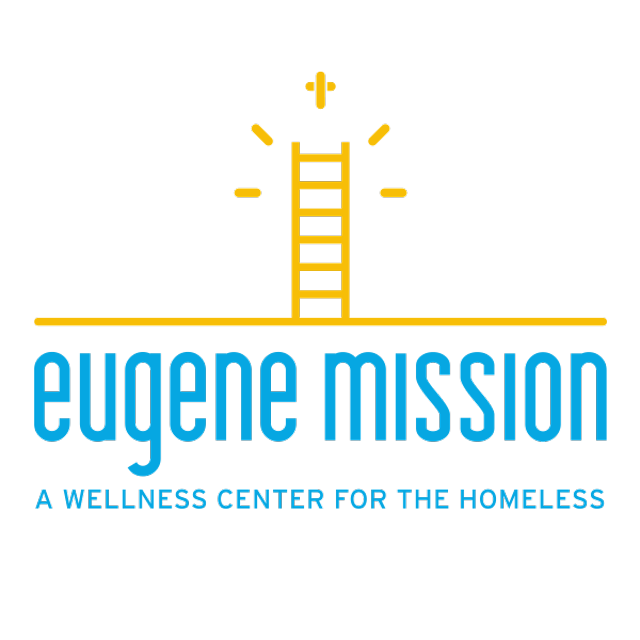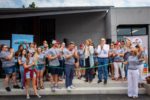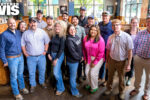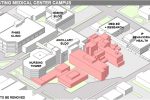Protecting Our Community During Crisis: Eugene Mission
The Eugene Mission is a cornerstone of our community. We got the chance to talk with Sheryl Balthrop, the Executive Director of The Eugene Mission about their response to the COVID-19 health crisis.
How has leadership within Eugene Mission adapted in response to the COVID-19 crisis?
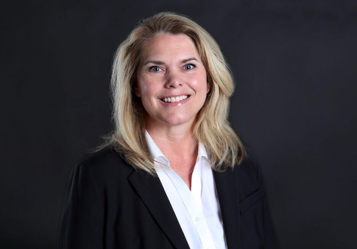
Sheryl Balthrop, Executive Director, Eugene Mission
We recognized early in March that we served a particularly vulnerable population with respect to COVID-19. Over 30% of our guests are over the age of 60, and a majority of our guests have compromised immune systems, respiratory challenges or other significant health issues. We promptly ramped up our personal hygiene and cleaning practices, including installation of additional handwashing stations and hand sanitizers. All persons on site are required to wear masks.
In order to de-densify, several staff moved out of their offices to temporary spaces and we converted their offices and unused rooms into additional sleeping quarters. We created 6’ of separation throughout our campus, including work spaces, sleeping areas and dining halls. Such separation required creativity and necessitated staggering meal times, marking hall ways and gathering areas with tape, and re-directing foot traffic.
We implemented “Shelter in Place” for the full period of Governor Brown’s “Stay Home/Stay Safe” order as it applied to Lane County (March 23 – May 15). Our guests have observed the same protocols as did the broader community and did not leave our campus except for essential trips such as for medical appointments.
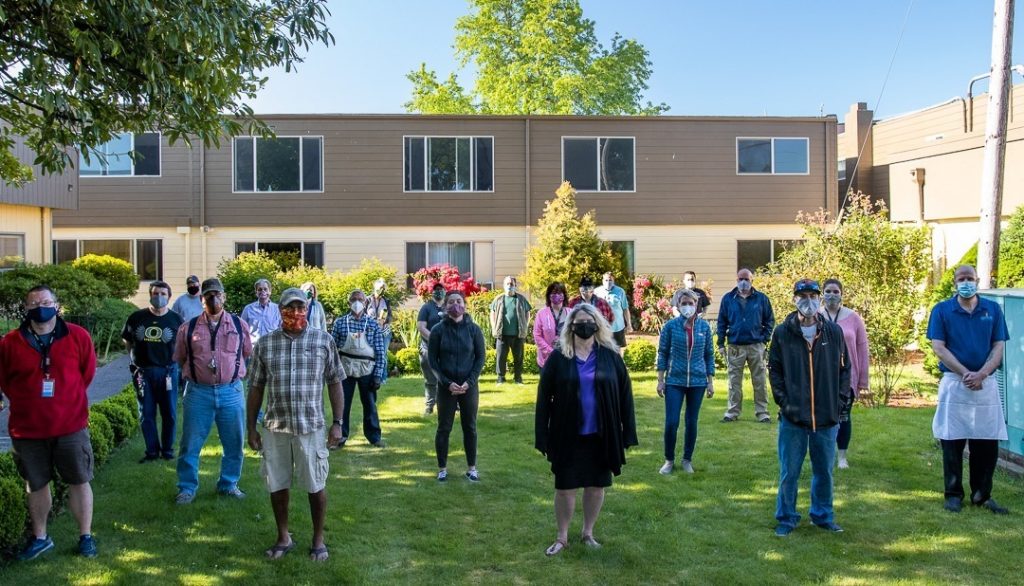
Pre-COVID-19, Eugene Mission operations were supported by hundreds of committed weekly volunteers. As a majority of our volunteers were in high-risk categories, we needed to ask our volunteers to step away from service during this season. We have also had a number of staff on leave. As a result, the Eugene Mission has served its hundreds of residential guests during COVID-19 with only a skeleton crew. The leadership team installed beds and cots in their temporary office spaces in order to serve as necessary. To further support our guests and team, I moved into a small apartment here at the Mission and was here 24/7 during the Shelter-in-Place period.
As an aside: one of the silver linings of this season is how our guests have blossomed. Guests have bonded together, are helping one another and are in engaged in daily activities and operations in new and robust ways!
Eugene Mission has been a leading center and resource for the homeless population in Lane County. How is Eugene Mission combating the influx of homeless individuals that have been displaced due to the COVID-19 crisis and the social distancing requirement? How have partnerships with local partners come into play?
I am pleased to share that at the Mission, no residential guest was required to leave in order to implement social distancing. There was no involuntary displacement due to COVID-19 in our population. The current decrease in the number of our overnight guests was almost entirely due to attrition because of Shelter-in-Place, mask wearing and other health and sanitation measures that departing guests found to be burdensome. (On a positive note, some departing guests were able to find independent housing and rejoin family.)
As for addressing displacement in the broader community, we are working diligently on capacity building and a plan to welcome back our volunteers in a phased and safe manner. While we will retain a limited stay crisis shelter program, we look forward to welcoming displaced unhoused individuals seeking a path off the streets into our transformational residential programs.
As a result of COVID-19, resource distribution streams have been interrupted. Reduced access to utilities and essentials has been acutely experienced by unhoused individuals camping or living on the street as access to water, bathrooms, showers, drop-in meals and electrical charge sources, has been largely cut off with the extended closure of public parks, bathrooms, libraries, and drop-in day services.
To help address this need, the Eugene Mission began a Mobile Outreach service on March 23rd to provide Hope and essentials. The Eugene Mission also serves as part of the Lane Area Resource Network and resources identified persons in need.
Additionally, the Eugene Mission has engaged in numerous collaborations with community partners to fill in some of the gaps. Examples during COVID-19 include:
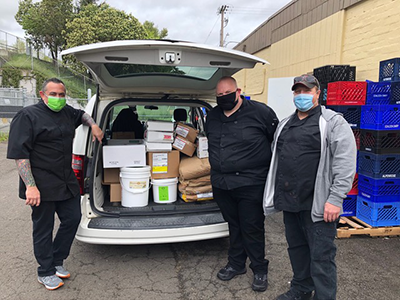
We have teamed up with Lane Community College’s culinary department to prepare food products for vulnerable individuals. For instance, LCC uses food from Mission storehouses to prepare dozens of pans of lasagna. Utilizing ingredients donated by GloryBee and McDonald Wholesalers to the Mission, LCC mixes, bakes and cuts hundreds of nutritious homemade granola bars for Eugene Mission distribution. Recently, LCC roasted and returned ready to package and serve hundreds of Eugene Mission frozen turkeys for future meals. Mission guests assist with outreach and delivery of such food items.
With incoming donations of fresh produce, bread products, and more from our wonderful food partners such as Trader Joe’s, Safeway, Albertson’s, Café Yumm (and a myriad of others), the Eugene Mission has also been able to share the community’s generosity with The Relief Nursery, Community Supported Shelters and Hosea Youth Services by supplying food boxes and prepared meals to those in need.
Do you foresee any of newly implemented methods affecting future operations of the Eugene Mission?
Yes. Internally, we do not wish to lose any of the strengthened relationships, sense of purpose, and enhanced job and life skill progress our guests have made during this season. We intend to emphasize working alongside our guests to help them remove barriers to rejoining healthy community. We will continue to work “WITH” our guests and pivot away from approaches that focuses on doing things “FOR” our precious guests which undercuts growth and resilience.
Externally, we recognize the power of intentional resourcing. Though perhaps not a popular observation, we experienced first-hand how problems pertaining to littering and property damage (both on our campus and adjacent properties), unauthorized camping, drug-use, threatening behavior and other problems, dramatically decreased during the time that our campus sheltered-in-place. The problems were not caused by our residential guests, but rather, by a small number of individuals who hung out nearby to benefit from drop-in resources, but who declined to engage in barrier removal activities.
Going forward, the Eugene Mission will continue intentional, constructive resourcing made possible by the generosity of our donors. We will focus our residential services on working with guests committed to removing barriers to rejoining healthy community. We urge our community partners to join us in focusing resources on 1) unhoused individuals who camp or stay at authorized sites, and/or 2) individuals who are sheltering in or who in good faith seek shelter in constructive environments. We need to focus available resources on supporting and incentivizing our precious unhoused neighbors’ path off the streets!
A big thank you to Sheryl Balthrop for sharing more about Eugene Mission’s response to the COVID-19 health crisis. To get involved with the Eugene Mission or for more information about the impact the Eugene Mission makes on our community, check out their website.
Discover more from Springfield Bottom Line
Subscribe to get the latest posts sent to your email.
